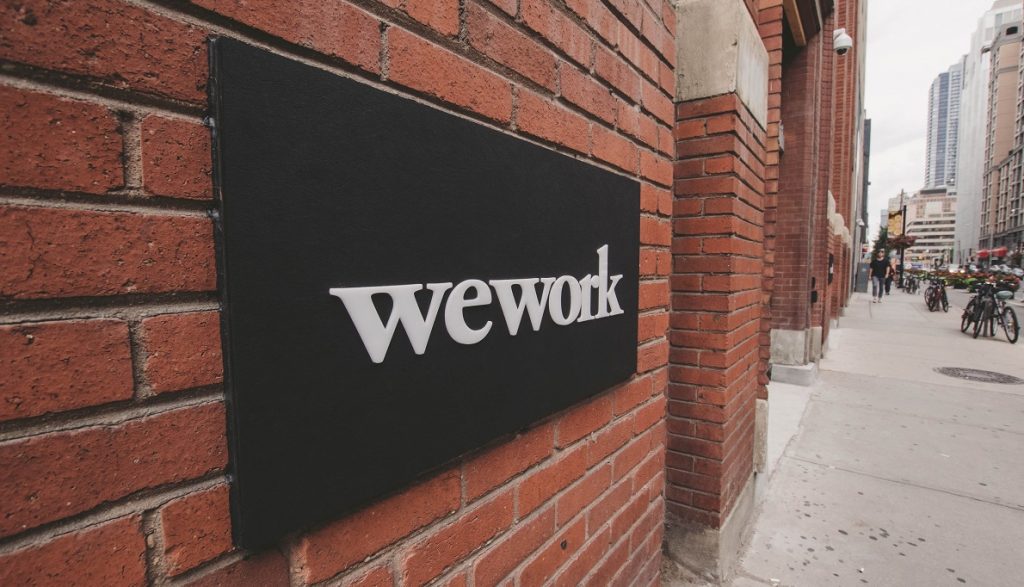Unicorns have been the stuff of legends for centuries. Many tales have been inspired by these mythical creatures, usually depicted as a white horse with a long horn extending from the forehead. But in the tech world, “unicorns” are real and there are over 200 companies around the world who have made the list as of 2017, according to research form CB insights.
In tech parlance, unicorns are privately-held startups valued at $1 billion and above. The term was first coined in 2013 by US venture capitalist Aileen Lee in an article titled “Welcome To The Unicorn Club: Learning From Billion-Dollar Startups” and has since taken off.
Israel, a small nation with nearly 6,000 active startups and companies and a world leader in tech, can claim 18 unicorns, according to an overview of the high-tech industry compiled by Israeli entrepreneur Yaron Samid, the founder of TechAviv, an invitation-only global Israeli startup founders club which currently boasts some 3,000 members.
The list was criticized for including companies with only loose connections to Israel and those without a presence in the country. But Samid, a serial entrepreneur with three exits under his belt – BillGuard, Pando Networks (acquired by Microsoft) and DeskSite – and the founder of angel investment firm Novadea, stands by the round-up, telling NoCamels that the purpose was to “show Israel’s transformation from a ‘start-up nation’ to a ‘growth nation,’ or ‘scale-up nation.'”
“If the list contained only companies headquartered in Israel, it would be a very short list. That would undermine the growth of industry in Israel I am trying to portray. And as a founders’ club, TechAviv also focuses more on founders rather than headquarter locations,” he says.
Samid’s list contains a caveat that reads: “This is not a list of ‘Israeli startups,’ it’s a list of private technology companies founded by Israelis…The goal of this list is to provide some perspective on the massive impact Israeli founders are having on the global innovation economy.”
Despite the flack, Samid tells NoCamels that his criteria for next year’s Israeli unicorns list will not change.
In addition to the unicorns, Samid also counted 26 Israeli “charging ponies,” startups and companies with a valuation of over $500 million as of June 2018. He says that he expects “the top half of the list to make unicorn list in 2019, if not by the end of this year.”
Below are the 18 firms among the unicorns list. Valuations are based on public and private sources, and are estimates, not exact numbers.
1. WeWork: $20 billion
Workspace empire WeWork was co-founded by Israeli entrepreneur Adam Neumann in 2010 in New York. The company has since grown to include 373 locations in 69 cities, including 10 in Israel, a majority in Tel Aviv. In 2017, after a $300 million investment by Japan’s Softbank, it became valued at over $20 billion, and holds the title of the seventh most valuable private-market start-up in the world. The company has also embarked on offshoots, launching WeLive, an urban co-living community that provides furnished apartments, communal spaces, and shared amenities, in New York City and Arlington, Virginia. And Rise by We, a wellness club and “superspa” also in the Big Apple, that builds on the “We” concept of communal experiences, launched earlier this year. Neumann was named among Time Magazine’s 100 more influential people in 2018 for “revolutionizing the way we work and reimagining how we live.”
But the company has its skeptics. Despite doubling its 2017 revenue from memberships to $822 million, its expenses have done the same — reaching around $1.81 billion. Bloomberg reports that the company’s net losses in 2017 was $934 million and that it owes $18 billion in rent. But with the transformation of employment in the digital age, WeWork’s leases are expected to generate more revenue than losses in the future – unless there’s an economic downturn.
2. Magic Leap: $5 billion
Magic Leap, a Miami-based company developing augmented reality technology, was co-founded in 2011 by Rony Abovitz, an American entrepreneur born to Israeli parents who immigrated to the US in the early 1960s.
The firm has pulled in impressive amounts of funding from major companies including Google and Qualcomm and continues to baffle observers by not yet having released a single product. The company is developing a mixed reality headset that resembles goggles called Lightwear, or Magic leap One, which is set for release sometime in 2018. The product can be compared to the Microsoft Hololens, but with a slightly larger field of view. The science behind it involves lightfield phototonics to create digital light at different depths and blend it with natural light to produce realistic digital objects co-existing in the real world.
Magic Leap opened an R&D center in Tel Aviv in 2015, acquiring the Israeli company NorthBit, an advanced software research company, a year later, according to Start-Up Nation Finder.
3. Tanium: $5 billion
Father and son David and Orion Hindawi founded Tanium, a security and systems management company for large enterprises, in 2007. Tanium’s technology is based on a platform that provides users with a means of defending against hacks and managing endpoints across the enterprise immediately over the network. In recent years, the cybersecurity market has stagnated a bit due to high-profile hacks, but Tanium has showed no sign of slowing down.
Orion Hindawi states that the company amassed “well over $200 million in revenue” last year, which was a 70% increase from the previous year. In the future, Hindawi hopes to take his company public, but does not consider it urgent.
David Hindawi was born in Iraq and immigrated to Israel in 1951, leaving for the US in 1970. Tanium has no known presence in Israel.
4. Houzz: $4 billion
Inspired by their own home renovation frustrations, design company Houzz was founded by Israeli college student Adi Tatarko and her partner Alon Cohen in 2009 and is now based in Palo Alto, California. Since launching the site, Houzz has also launched an app which was won “Best App” at Google’s inaugural Play Awards in May 2016.
The Houzz product is “made up of five interconnected parts” that includes photos, products, find a pro, ideabooks, and community advice. One of its biggest launches was the “View in My Room” 3D feature for iPhone and iPad users in May 2017, where they can preview countless home furniture and décor products from the Houzz shop. This year, Houzz acquired Israeli startup IvyMark for a reported $40 million.
5. Compass: $2.2 billion
The New York-based real estate tech startup Compass was founded by Israeli-born entrepreneur Ori Allon in 2012. The company provides software to real estate agents to improve efficiency, and says it is building the first modern real estate platform. Compass currently operates solely in the US, with 12 different office locations across the country.
The company caught the attention of Fidelity Investments, which gave a rare evaluation of $1.8 billion in 2017, and has grown ever since. However, the company faces some challenge in distinguishing itself as a tech startup from a real estate broker. Besides it being “sleek,” Vera Nelson, a California real-estate agent of 17 years, told Bloomberg, “I can’t say it was different from anything else out there.”
6. Elastic: $2 billion
Elastic was founded in 2012 in Amsterdam by Israeli-born developer Shay Banon, also behind Elasticsearch and Apache Lucene,. Company headquarters are now located in Mountain View, California. Elastic set forth a vision that search can solve data problems, with growing demand or real-time search across infinite data. The company employs people from 32 countries, and has a broader community that spans over 100 countries. To date, it brings in an estimated revenue of $11 million per year and has raised $104 billion since its founding.
7. Infinidat: $1.6 billion
Moshe Yanai founded the Herzliya-based INIFIDAT in 2011 to focus on eliminating the “compromises between performance, availability, and cost at multi-petabyte scale for enterprise storage.”
The company, with offices in the US and Europe, provides solutions for data storage, data protection, business continuity, and sovereign cloud storage. It released the first InfiniBox®, a storage platform that is installed in Global 500 companies around the world. It is funded by top-tier venture capital firms such as Goldman Sachs and has a total funding of $325 million. In March, the company announced a major expansion of its product portfolio with new solutions and a higher capacity version of their F6000 series InfiniBox. Today INFINIDAT holds over 130 patents and 17 consecutive quarters of revenue growth.
8. ironSource: $1.5 billion
Sign up for our free weekly newsletter
SubscribeOriginally founded by developers building consumer applications, the team quickly realized the difficulty in turning apps into businesses. The developers then turned their attention toward building an extensive suite of tools to help app developers, and quickly became the market leader in application monetization and distribution.
The company, founded in 2010, has eight office locations across the world, with headquarters in Tel Aviv. It has been named one of the “20 hottest startups” in 2014 and was listed in Wall Street Journal’s “Billion Dollar Startup Club.” It was also named as a Global Growth Company by the World Economic Forum (WEF) in September 2015. It has over $105 million in received funding.
9. Payoneer: $1.5 billion
Payoneer, as the name suggests, is a financial services company that provides digital payment services founded by Yuval Tal in 2005. Tech giants such as Google, Airbnb, Amazon, and Upwork use Payoneer to send mass payouts across the globe. The company has offices in Israel, India, Japan, UK, and the Philippines, and is headquartered in New York City. There is speculation that the company will file for an IPO.
10. Gett: $1.4 billion
Previously known as GetTaxi, Gett was founded by Israeli entrepreneurs Shahar Waiser and Roi More and is a global on-demand service company that connects customers with transportation, goods, and services. Customers can order a taxi or courier through the website, or with the GPS-based app. Its distinction from companies like Uber or Lyft is that it actually calls a taxi, not just a driver or courier. Currently, Gett operates in more than 120 cities across the US, the UK, Russia, and Israel. In May 2016, Volkswagen Group led a founding round of $300 million in Gett, and recently invested an additional $80 million.
11. eToro: $1 billion
At first founded as RetailFX in 2006 by brothers Yoni and Ronen Assia with David Ring, eToro is a social trading and multi asset brokerage company with registered offices in Cyprus, Israel, and the UK. Its main office is located in Tel Aviv. The company released the eToro mobile app in 2012, which allowed users to perform any action on the go. Recently, eToro has expanded its new markets and made it possible to invest and trade in cryptocurrencies. In total, the company has raised $162 million in funding.
12. OrCam: $1 billion
Jointly founded in 2010 by Professor Amnon Shashua and Ziv Aviram (also the co-founders of Mobileye), OrCam’s mission is to harness the power of artificial vision by using pioneering technology into wearable apparel. It is currently headquartered in Jerusalem, with offices in New York, Toronto, and London.
Its targets are the blind, visually impaired, and those with reading difficulties. OrCam works as a small camera clipped to the wearer’s glasses and connected to a portable, pocket-sized computer. The original OrCam MyEye device was launched in 2015, and the second generation in 2017.
Since their debut, both gadgets have won many awards. In February, Reuters reported that OrCam has raised $130.4 million from investors so far.
13. Gusto: $1 billion
Gusto was launched on December 11, 2012 as ZenPayroll and provides a cloud-based payroll, benefits, and human resource management solution for businesses based in the US. As part of Y Combinator’s Winter 2012 batch, it is based in California and was founded by Israeli-born Tomer London, Josh Reeves, and Edward Kim. Currently, the company serves more than 60,000 businesses worldwide, process tens of billions of dollars of payroll, and provide employee benefits. It has received an aggregate $176.1 million in funding.
14. Outbrain: $1 billion
Outbrain was founded by Yaron Galai and Ori Lahav in 2006 as an online advertising company specializing in presenting sponsored website links. They hold 16 global offices, including in Netanya, and partnerships in more than 55 countries. Outbrain boasts an impressive 275 billion monthly recommendations in 14 different languages and comprise of about 80 percent of the World’s Premium Publishers. Some customers include CNN, Mashable, MSNBC, Slate Haaretz, and Le Parisien.
15. Taboola: $1 billion
Taboola was launched in 2007 by Adam Singolda in Israel and is headquartered in New York. He founded the company based on the premise that search engines are not enough to help someone discover something they may like if they don’t already know to look for it.
Taboola calls itself like a “search engine in reverse.” The technology creates the “Around the Web” and “Recommended For You” boxes at the bottom of webpages. In 2017, the company says it had generated more than $750 million in revenue. However, some are unhappy with Taboola’s recommended selections, and there has been controversy surrounding the fact that its links are sponsored by advertisers.
16. Fiverr: $1 billion
Shai Wininger and Micha Kaufman founded Fiverr in Tel Aviv on February 1, 2010, as a marketplace that provides a two-sided platform for people to buy and sell digital services. All services start at $5, and can go up to thousands with Gig Extras (a service is called a “gig”).
The company released iOS and Android apps in 2013 and 2014, respectively. However, after receiving some criticism for advertising very cheap graphic services, in 2015 the company announced that it would be expanding the marketplace to allow sellers the ability to price productized services above $5. Fiverr has raised $110 million in funding and has two acquisitions.
17. Lemonade: $1 billion
Lemonade, or Lemonade Insurance Company, was founded in New York by Daniel Schreiber and Fiverr co-founder, Shai Wininger. The company uses behavioral economics and technology, leveraging artificial intelligence and chatbots to deliver insurance policies and handle claims for users in 16 states.
A relatively new company, Lemonade has already disrupted the insurance industry, and is recognized as one of the top 25 tech companies to watch in 2017 by the Wall Street Journal. The company has raised $180 million in funding so far.
18. VIA: $1 billion
Ride-sharing startup VIA was founded in 2012 by Daniel Ramot, the company’s CEO, and Oren Shoval, its CTO. Headquartered in New York, VIA has a development center in Tel Aviv.
VIA developed a web and mobile app to allow users to share rides at a flat rate, matching passengers with drivers headed in their desired direction. Unlike Uber and Lyft, VIA does not offer door-to-door services.
The company currently operates in New York, Washington D.C., and Chicago, and one of its main services, ViaVan, which connects mutiple passengers with a single vehicle operated by VIA recently launched in London, UK, and Arlington, Texas.
Related posts

Editors’ & Readers’ Choice: 10 Favorite NoCamels Articles

Forward Facing: What Does The Future Hold For Israeli High-Tech?

Impact Innovation: Israeli Startups That Could Shape Our Future











Facebook comments